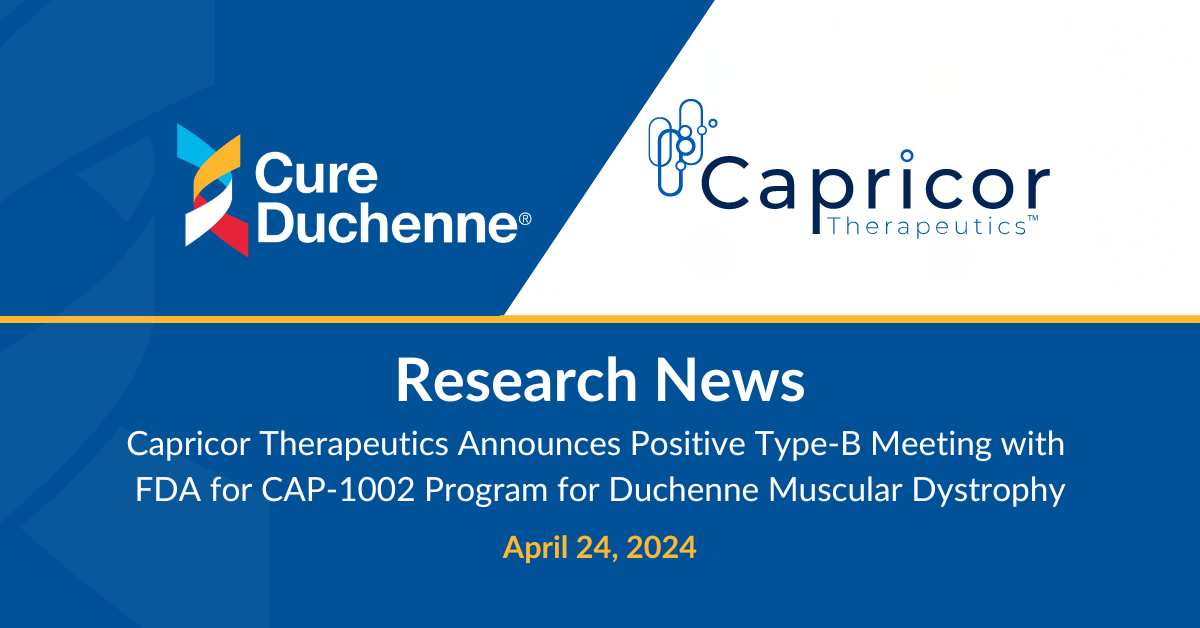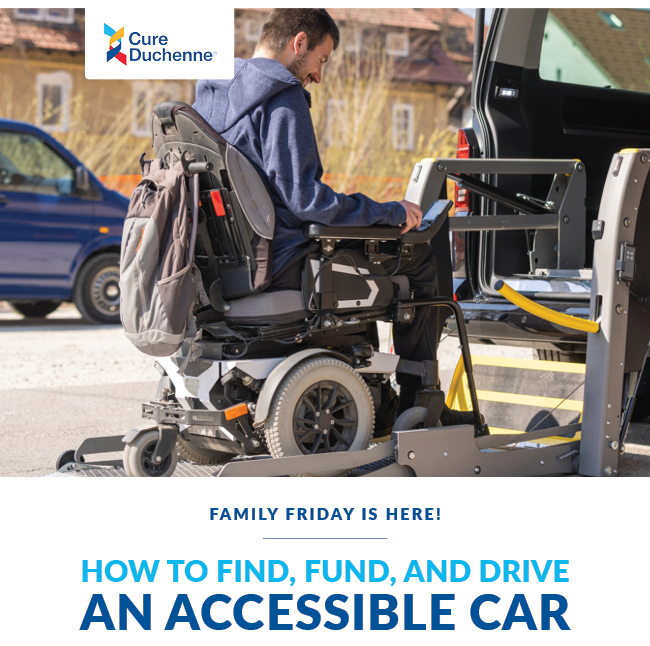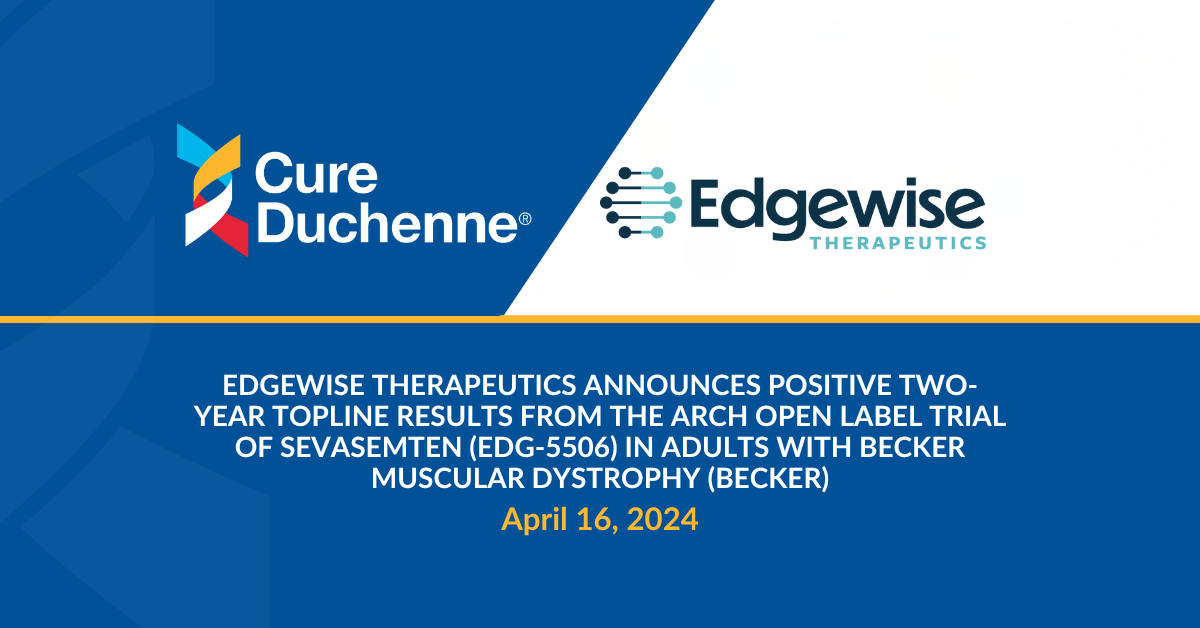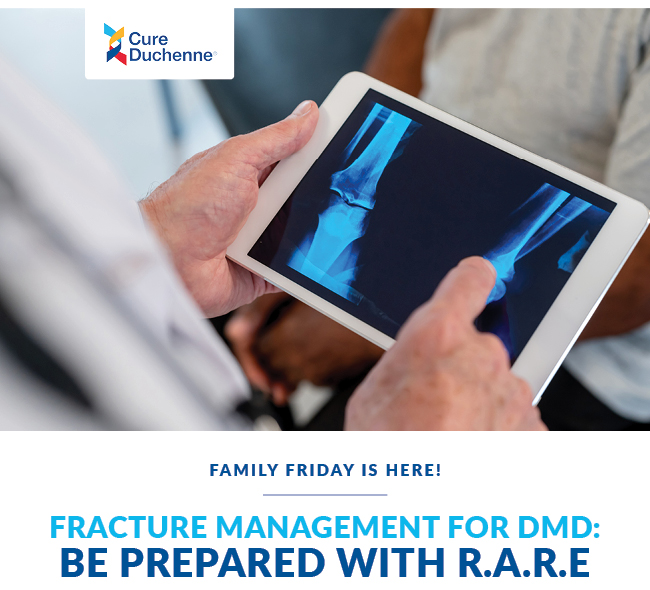#DuchenneChat hosted by CureDuchenne
CureDuchenne hosted a live Twitter chat on September 20 to raise awareness and address the important issues facing the Duchenne community. It was an opportunity to hear from patients, parents, caregivers and featured special guest Perry Shieh, MD, practicing clinician at the Center for Duchenne Muscular Dystrophy at UCLA, a certified Duchenne Care Center. Topics included disease progression, treatment landscape, new research, available support groups and more.

Click here to see all the Tweets in one spot or see a transcript of the Q&A below (Please note the #DuchenneChat has been removed in the Q&A and multiple tweets regarding the same answer have been combined into one response for ease of reading).
Welcome to #DuchenneChat! We’re building a community for sharing info and resources and finding support among families impacted by #Duchenne.
 Today we’re excited to be joined by Dr. Perry Shieh of @cdmducla who is ready to chat with us and answer your questions #DuchenneChat. Shieh is a practicing neurologist helping patients at all stages, from suspected childhood diagnosis through adulthood #DuchenneChat. We have a few questions for Dr. Shieh & he’ll take over our handle to share his insights. His messages will be signed “-PS” #DuchenneChat
Today we’re excited to be joined by Dr. Perry Shieh of @cdmducla who is ready to chat with us and answer your questions #DuchenneChat. Shieh is a practicing neurologist helping patients at all stages, from suspected childhood diagnosis through adulthood #DuchenneChat. We have a few questions for Dr. Shieh & he’ll take over our handle to share his insights. His messages will be signed “-PS” #DuchenneChat
We’ll chat about disease progression, treatment landscape, ongoing research, and support groups #DuchenneChat
Please feel free to jump in at any time with your comments and questions… Dr. Shieh is here to be your resource! #DuchenneChat
Q1: First off, Dr. Shieh can you tell us a little bit about your work @cdmducla? #DuchenneChat
A1: I am part of @cdmducla group focused on Duchenne MD. Multiple disciplinary clinic. It consists of researchers, clinicians, and allied health care providers that are experts in Duchenne.
Q2: Good morning, Dr. Shieh. What is ‘translational research’?
A2: Translational research is taking science and bringing it to clinical care. Take a molecule in a petri dish see if it works in treatment.
Q3: As the kids are living longer, do you see any of your focus being taken away from early diagnosis and treatment and being delivered to older kids that have more advanced forms of DMD?
A3: Both early diagnosis and treating older patients are important Treating older patients does not take away from importance of early diagnosis.
Q4: When you meet with patients who have just been diagnosed, what is the first thing you tell them and their families?
A4: Duchenne is devastating disease there are treatments that make dramatic difference in patients’ lives. These treatments improve our patients function, longevity as well as quality of life.
Q5: Dr Shieh, are you allowed to tell us how many Essence participants you are treating at UCLA?
A5: The ESSENCE study is a placebo controlled exon skipping study sponsored by Sarepta. For exon 45 and 53. The study is due to fully enroll in November.
Q6: At present are you doing any trial with non-ambulatory boy?
A6: Yes, FibroGen Study and Santhera study. These are the studies we are involved with that accept nonambulatory patients.
Q7: About how many new patients come into the @CDMDUCLA system each year?
A7: About 15-20 new Duchenne patients not counting those only coming in for research.
Q8: What do we know about Duchenne now that we might not have known at the start of your career?
A8: We understand genetic testing for Duchenne much better and better defined supportive treatment. We understand the natural history of the disease better and how to measure treatment effect new drugs being tested.
Q9: I am planning to enroll my son in Fibrogen study, is the study still recruiting?
A9: Yes, the FibroGen study is still recruiting.
Q10: What challenges do researchers face when studying new treatments for Duchenne?
A10: There are many ideas being tested and because of variability of the disease each trial needs many patients. Also, patient fatigue. These studies require many visits, procedures so patients and families are sacrificing.
Q11: Are you hopeful and confident that Essence could, with successful results, lead to class approval for all the amenable exon?
A11: “It is difficult to predict if the FDA will respond to a positive result from any clinical trial drug being studied. It would be even harder to predict if the FDA would allow the results to be generalized to other exon skipping
Q12: How is genetic testing changing the diagnosis of Duchenne?
A12: We used to diagnose Duchenne with a biopsy. Genetic testing has made that invasive test almost unnecessary. We also understand much more about the DMD gene and how to predict the severity of the disease. The genetic testing results are also guiding us to certain therapies.
Q13: In re: A11, has there been though to putting together a panel to petition the FDA to allow generalization to speed the process?
A13: There was controversy when the first exon skipping therapy was approved. Some people believe that public petitioning may have contributed to the FDA decision to approve. Many of us in the Duchenne community now are cautious about being aggressive with this approach.
Q14: Can you explain the importance of mothers and carrier testing?
A14: Testing mothers is important not only for potential family planning but also because carriers may be affected. Carriers may be at risk for heart failure as well as possible muscle weakness.
Q15: How are new pharmacological and gene-based therapies changing the treatment landscape? What does the future look like?
A15: Up until last year the only drug we were using for Duchenne was steroids. Also, blood pressure medications. Now certain patients may be candidates for exon skipping or nonsense read through. This year deflazacort was approved as an alternative to prednisone. Strategies that do not require specific genetic testing results are being studied including myostatin, utrophin. Gene therapy to name a few. I don’t know what the future for Duchenne will be but probably a combination of a few of the strategies.
We have reached the end of our first ever #DuchenneChat! Dr. Shieh, we thank you for your time and insights, this has been wonderful!
If you have additional questions or ideas for our next #DuchenneChat, you can send us an email at info@cureduchenne.org.
Thanks to Dr. Shieh and # @CureDuchenne for this event




